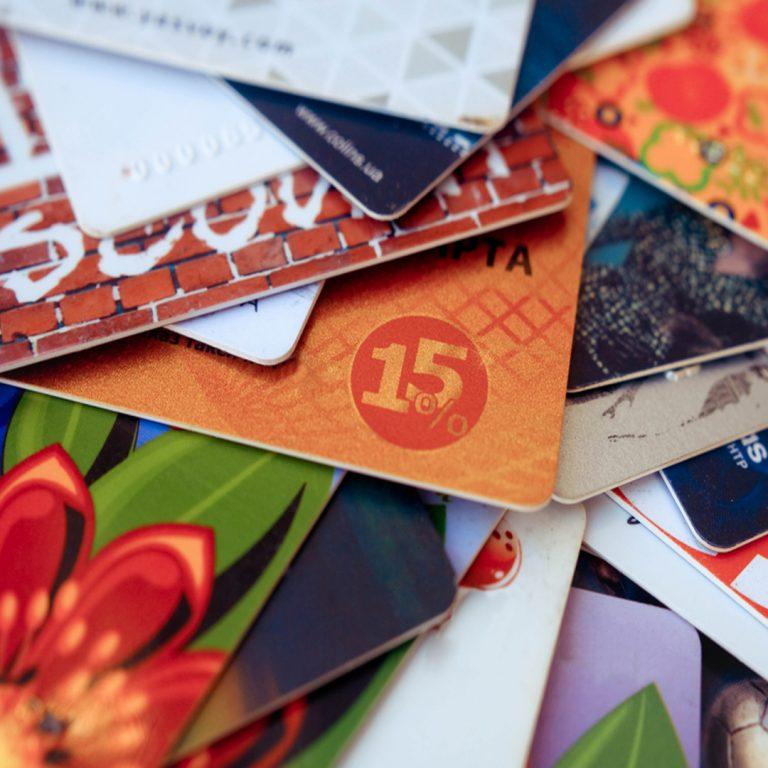With the holidays approaching, you may be tempted to buy a piece of plastic instead of a tie, jewelry, or some other “risky” item. While a gift card can be an easy way to make someone happy without having to guess taste or need, be aware that you could be paying a premium for the convenience if you don’t shop around first.
There are three basic varieties of gift cards:
- Store gift cards, which can only be used at a particular retail establishment. These tend to have no or very low fees.
- General-purpose gift cards sporting the American Express, Visa, or Mastercard logo, which can be used virtually anywhere. The shopper isn’t limited to one specific store, and they can offer maximum shopping flexibility.
- Prepaid debit cards are more like giving someone a checking account as a gift. These cards can be used to make purchases, pay bills, and withdraw cash from ATMs. They can also be reloaded and used indefinitely (as long as money is continually added to the card). Because of their versatility, these cards may have monthly fees.
Here’s an overview of these three types of cards, including where they can be used, any fees charged, the fraud risks, and their pros and cons.
Store Gift Cards
Store gift cards are branded by a particular retail store, such as Starbucks, Target, a chain restaurant, or any retailer that offers gift cards. They can be physical cards or digital cards.
Where can store gift cards be used?
Store gift cards, as the name implies, are store-specific, which means that you can only use them at the store that issued them. For example, a $50 gift card from Dunkin Donuts will buy you quite a few breakfast sandwiches, just not at Starbucks.
What fees are involved with store gift cards?
Store gift cards tend to have low fees, if any. Gift Card issuers are not usually credit card issuers, they simply pay Visa or Mastercard to use their “rails.” For that reason, they charge the buyer an additional sum at the time of sale as an activation fee, which could be from $2.95 to $6.95 depending on how much cash is on the card. These cards are not reloadable.
Do store gift cards expire?
Thanks to the Credit CARD Act of 2009, the balance on a gift card cannot expire for at least five years from the date of purchase, or last reload in the case of cards that can be reloaded. The Act also prohibits inactivity or service fees in the first year, and after the first year, there can only be one fee assessed per month. However, if fees are charged after the first year, be aware they can erode a balance quickly, thus “expiring” your balance well before the CARD Act’s five-year expiration.
Scammers and Fraud Risks
Scammers can physically tamper with a gift card in a store to obtain gift card numbers and PINs. For example, some cards have a silver strip covering the PIN. Scammers can remove the strip, copy the card details, and replace the strip with a similar-looking sticker. When an unsuspecting customer buys and activates the card, the scammer can access the funds.
Hacker-controlled bots can also access a business’s online gift card balance check system to find a gift card with an activated balance. The scammer can then use the gift card or sell it. Fraudsters can also access a customer’s online account to view and use saved gift card information.
Pros and Cons of Store Gift Cards
Store gift cards can seem like a more personalized gift for someone because you can buy one from the recipient’s favorite retailer. They can be used in-store or online. The drawbacks are that they can only be used at one retailer. As with all gift cards, there is a risk of fraud.
General-Purpose Gift Cards
“General-purpose” gift cards are prepaid cards that sport the American Express, Visa, or Mastercard logo and can be bought from retailers or online platforms.
Where can general-purpose gift cards be used?
These cards are not store-specific, and they can be used anywhere that accepts American Express, Visa, or Mastercard, and that includes ATMs. They are not typically reloadable, meaning that once the balance is spent, the card cannot be used.
What fees are involved with general-purpose gift cards?
General purpose prepaid gift cards may come with a number of additional charges.
There will likely be an activation fee that the buyer of the card pays, which could be from $2.95 to $6.95, depending on how much cash is on the card. There also may be a dormancy fee that applies after one year of inactivity. According to the gift card provisions of the Credit CARD Act, if there is a period of inactivity of at least one year, institutions could charge a monthly “service fee” to keep the card active.
Other fees might include a closing fee. If the recipient wants to cash out the balance on the card for the remaining stored value, they may be charged a closure fee to do so.
Card replacement or reissue fees may be charged for lost or stolen cards. Lost cards may be replaced with a new card for the remaining balance, but it may not be worth the effort if the remaining value is small. Like most products ordered online, gift cards could also have a shipping charge depending on the amount purchased.
While many general-purpose cards allow ATM access, a transaction fee might apply. If the card is used at an ATM not owned by the issuing financial institution, even more charges will be deducted. Service fees are another consideration. Want to speak to a customer service agent? There could be a fee for that too!
Do general-purpose gift cards expire?
The Credit CARD Act of 2009 applies, and the balance on a gift card cannot expire for at least five years from the date of purchase. The expiration date is printed on the front or back of the card. If your card expires, you can request a replacement card or a check for your remaining balance.
Scammers and Fraud Risks
American Express, Mastercard, and Visa pre-paid gift cards are subject to the same scams as retail gift cards, such as physical tampering of cards in-store to obtain card numbers and pins and hacking into cardholder accounts.
Pros and Cons of General-Purpose Gift Cards
American Express, Mastercard, and Visa gift cards can be used anywhere, even ATMs, so they are flexible. In that regard, they are as good as cash. These gift cards pose the same risk as all other gift cards for fraudulent activity.
Prepaid Debit Cards
Banks, credit unions, and retailers offer prepaid debit cards. They can be used indefinitely because you can add funds to the balance at any time, either online or at an ATM.
Where can prepaid debit cards be used?
Prepaid debit cards function just like a regular debit card once you register them under your name. You can use them at any store, withdraw cash at ATMs, and use web features such as bill pay.
What fees are involved with prepaid debit cards?
These cards offer additional options compared to gift cards, such as online bill pay. Because of these extra services, they may charge monthly fees similar to a checking account. There may also be transaction fees, inactivity fees, and reload fees. You might have to pay for activating or getting a card, making deposits and using out-of-network ATMs. Some cards charge a fee for every purchase.
Do prepaid debit cards expire?
Prepaid debit cards do expire, but you can request a new card and have any balance transferred to the new card.
Scammers and Fraud Risks
Prepaid cards are federally protected from unauthorized use, including withdrawals and purchases made without the owner’s consent. If you let the bank or entity that issued the card know about any unauthorized transactions straightaway, your responsibility is limited to $50.
That’s a good thing because prepaid cards can be easy targets for scammers. Hackers have been known to set up fake “top-up” stations for refilling card balances or to create fake websites that mimic those of real pre-paid card companies. Scammers lure the cardholders in by promising top-up bonuses, rebates, or other discounts.
Another example of fraud is scammers who pretend to be a trusted vendor, such as a utility or phone company. They might claim that a payment did not go through because there was insufficient balance on the card and trick you into making a payment to them, not the real vendor.
Pros and Cons of Prepaid Debit Cards
Prepaid debit cards might be a suitable learning tool for a child who is curious about banking and debit cards. There is no way to spend over the amount on the card without reloading it, and some offer budgeting apps to help track spending.
Gift cards can indeed be a great present. But before you buy, shop around for a card with the least amount of fees and restrictions. That way, your dollars will stretch the furthest, and your loved one will reap the most from your generosity.






Comments Section
Please note: Comments are not monitored for member servicing inquiries and will not be published. If you have a question or comment about a Quorum product or account, please visit quorumfcu.org to submit a query with our Member Service Team. Thank you.